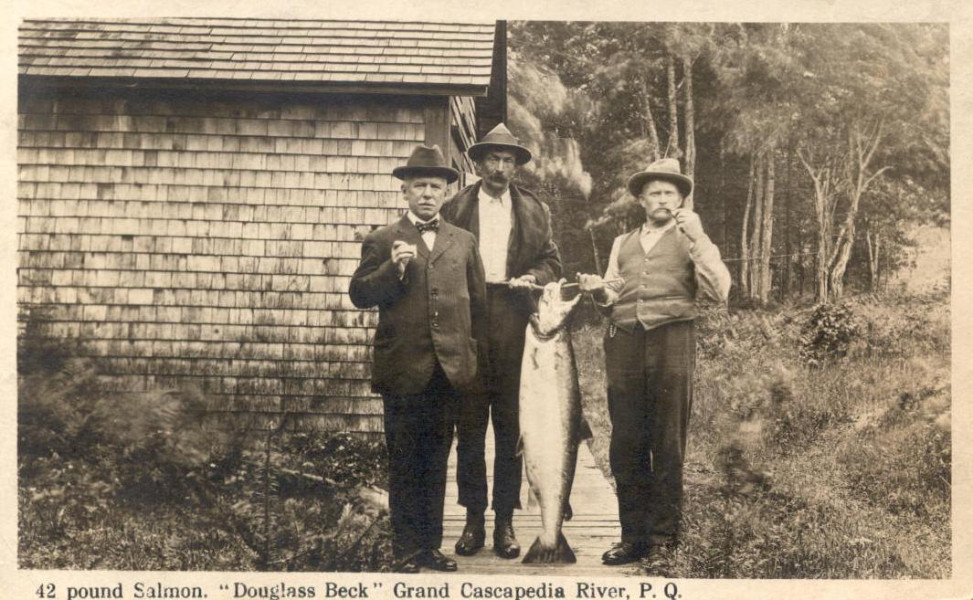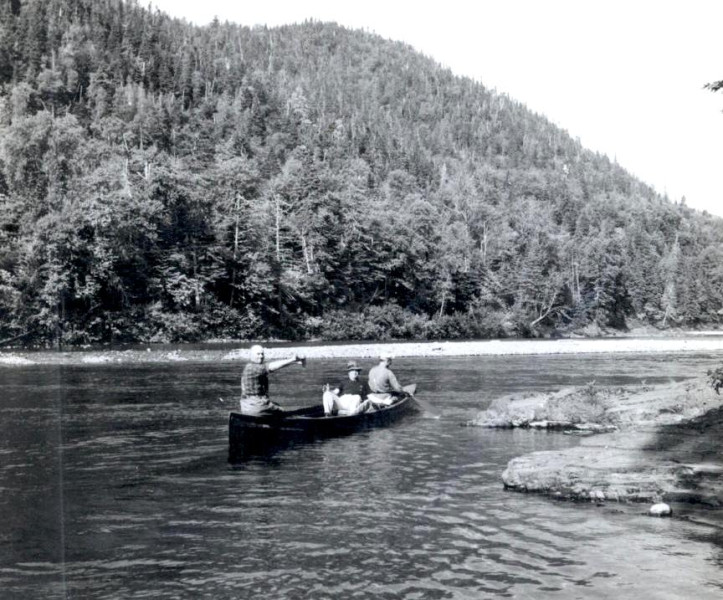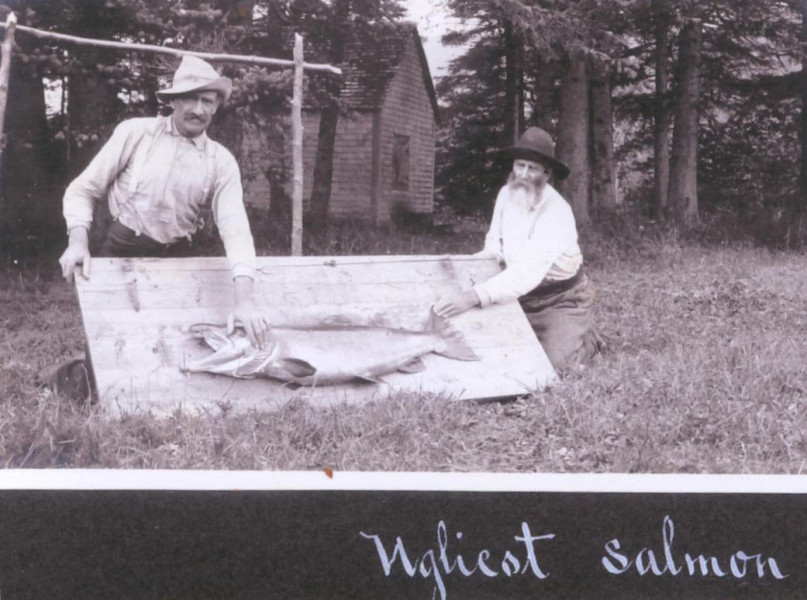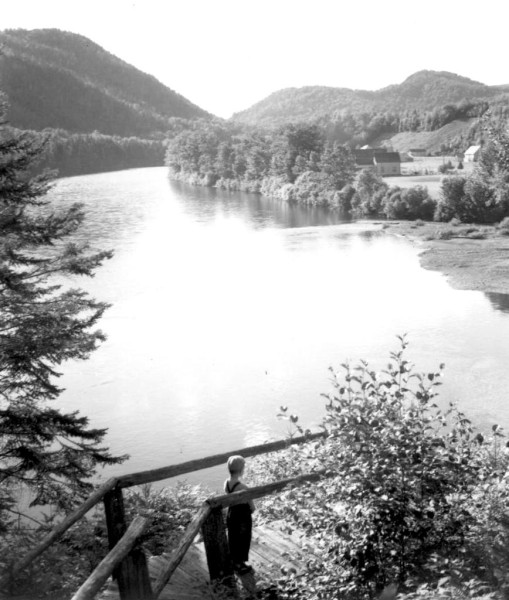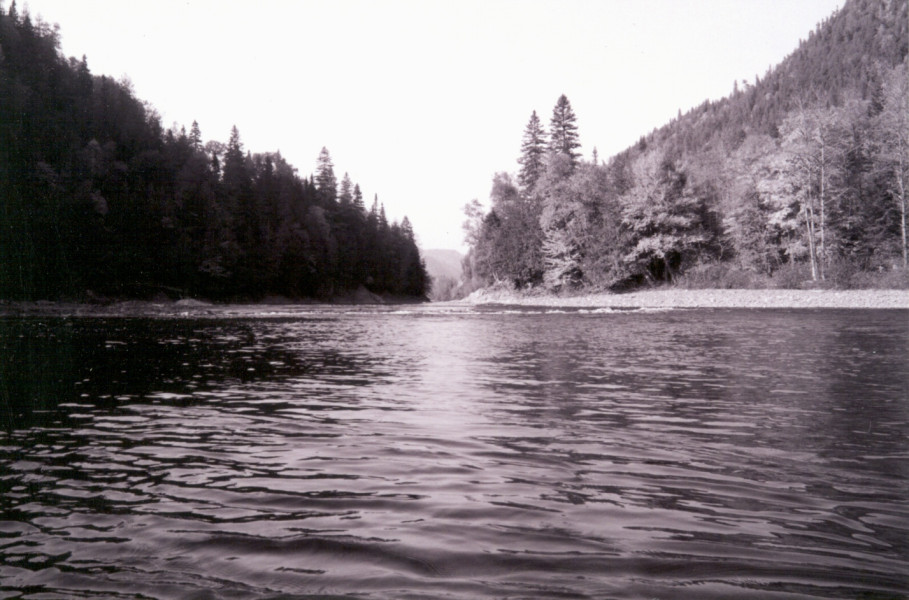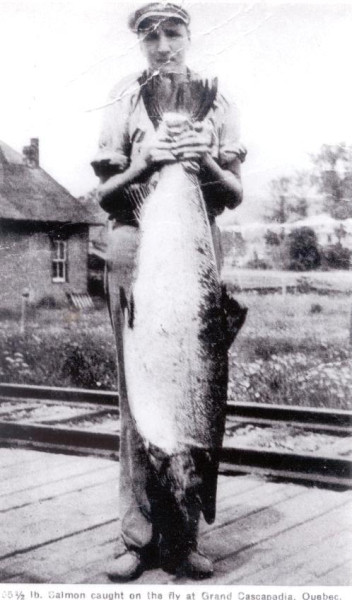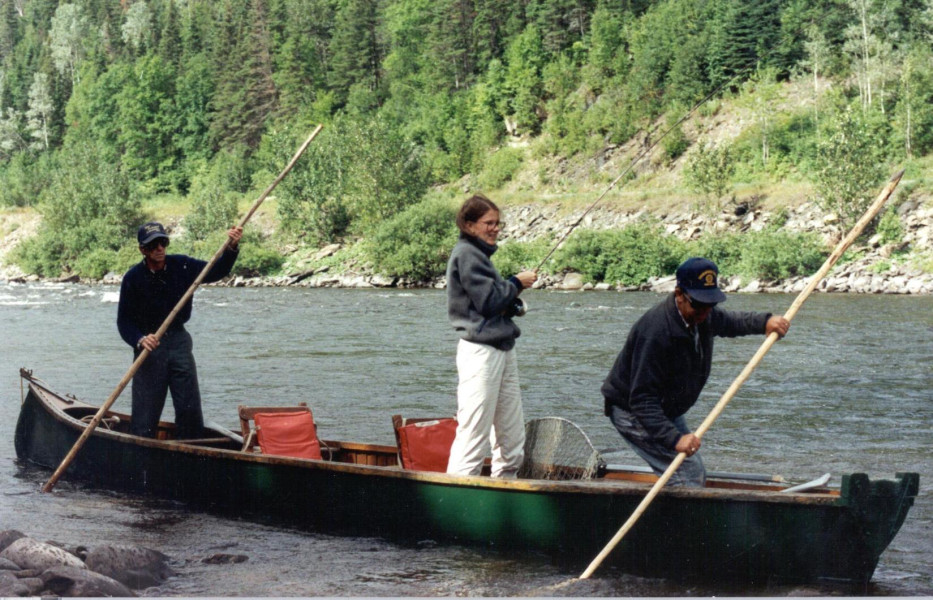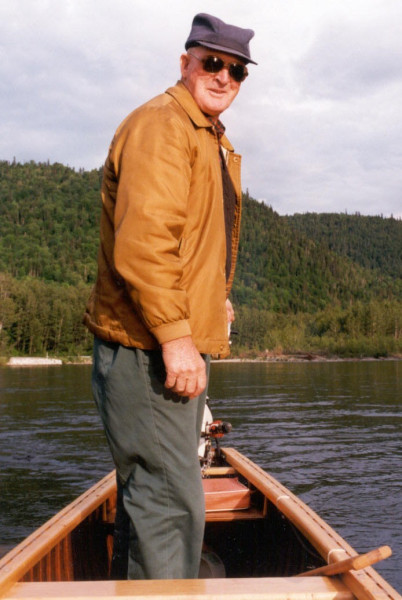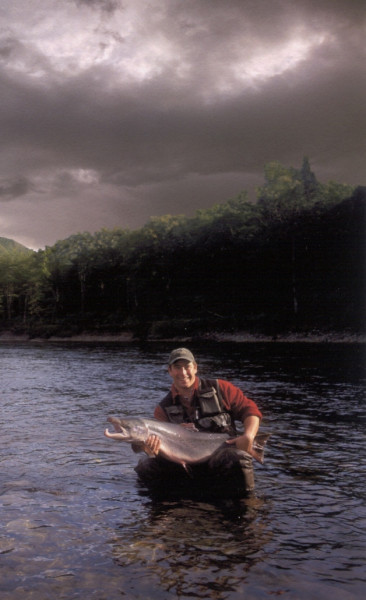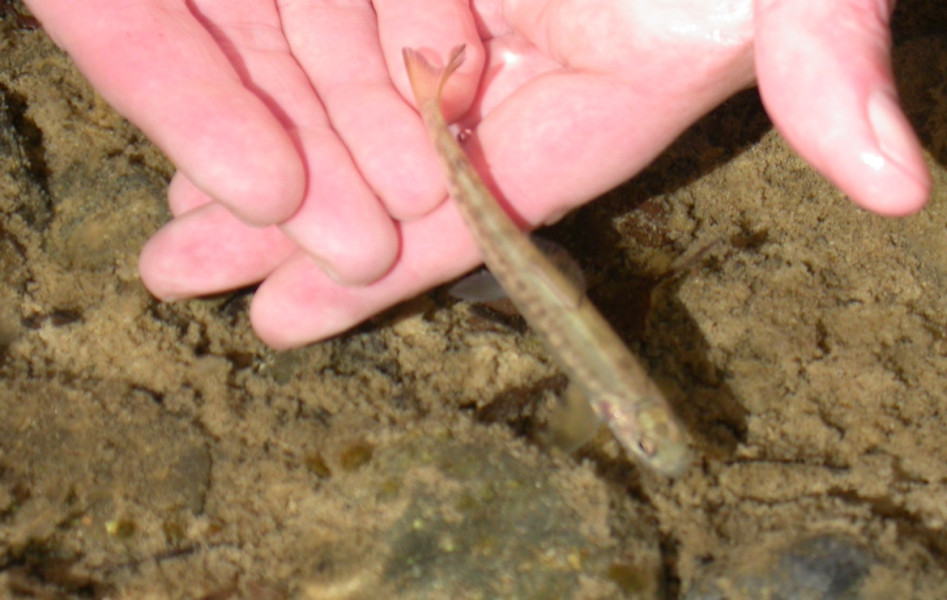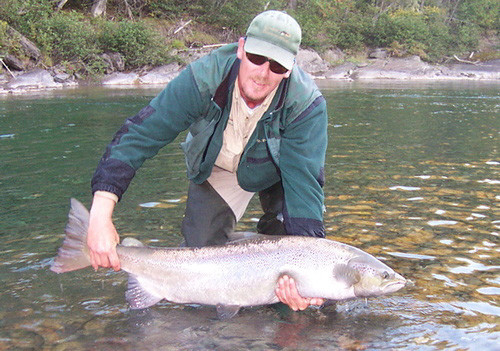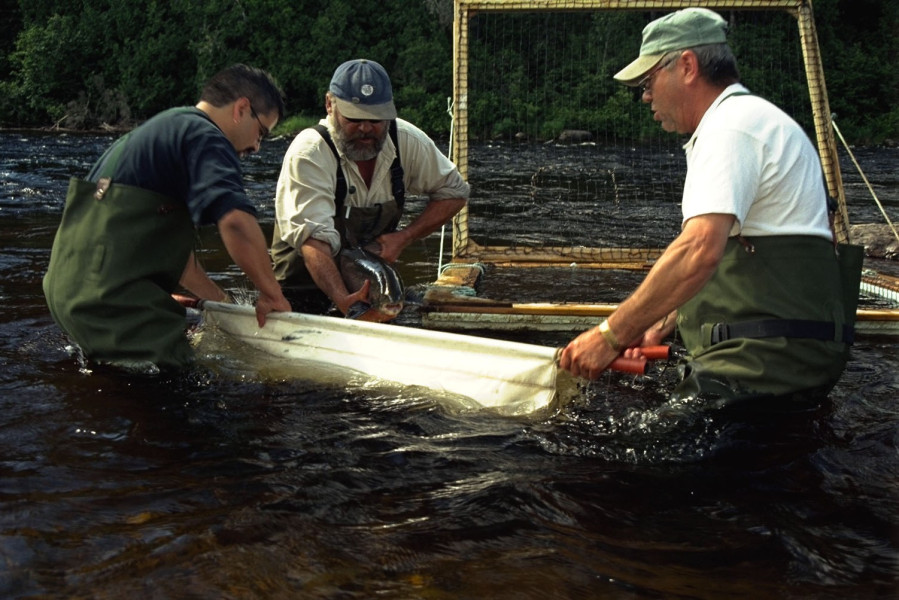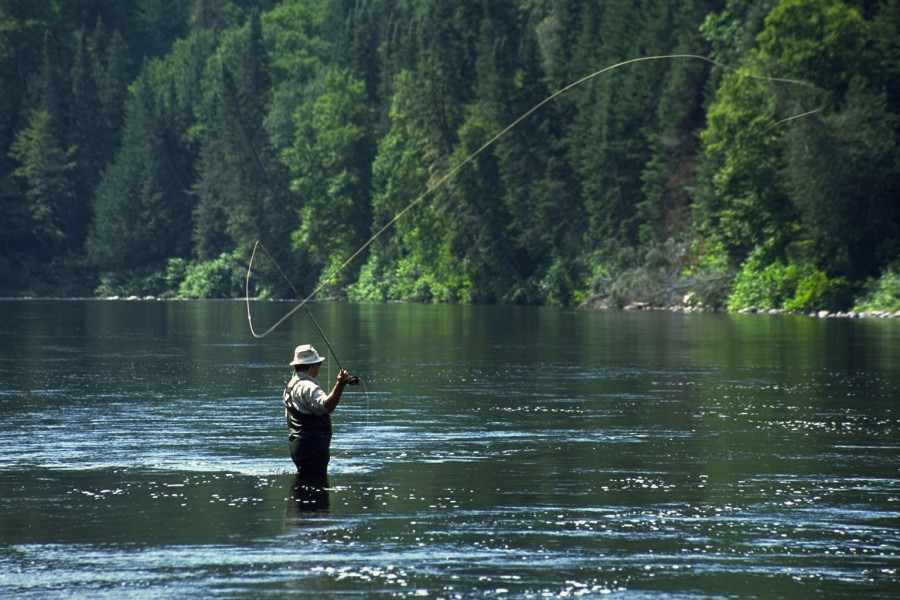Introduction:
The Cascapedia River flows quietly through the village of Cascapedia-St. Jules. If it could only talk, this river would surely tell a thousand tales about the lives of the people who have lived along its banks, and about those who have come to experience salmon fishing in its waters. It would recount the local folklore about the men who have lost their lives during the log drive or the farmers who had to start all over again after the river flooded their fields. It would tell the story of the largest salmon ever taken from its waters, or of the princess who painted its natural beauty.
If it could talk, the river would no doubt acquaint us with the rich and the famous who have escaped their busy lives to find a sense of peace and balance in the hidden forests of the Cascapedia Valley. It would tell of the salmon anglers who always return to their favourite fishing pools so that they can replenish their stock of fishing stories for another year, anglers who come not only for the bountiful yield of fish, but also to share in the warmth and hospitality of the village and its way of life.
If it could talk, the Cascapedia would certainly tell of the mix of cultures that has added a distinctive multicultural aspect to the local community.
No doubt, however, the Cascapedia would surely admit that it would be just another stream if it were not for the love of the local people and the anglers that still cast their lines across its waters.
 Yesterday:
Yesterday:
The “Grand” Cascapedia is a river rich in tradition and history. Its heritage is a reflection of the worldwide angling community whose passion for salmon fishing brought them to the small community on the Gaspé Coast in Quebec.
For more than 150 years, the Cascapedia has told a story of a river, a community and the rich and famous of the world who have came to enjoy the sport of Atlantic salmon fishing.
The local inhabitants living along the river included the Mi'kmaq community as well as settlers of Irish, Scottish, Loyalist and Acadian descent. Many of these people became expert fishermen and were well prepared to work as guides for the visiting anglers.
Within a few years of its settlement, the Cascapedia became one of the premier destinations for serious salmon anglers. In the late 1800s, it became the domain of the governors general of Canada and a destination chosen by celebrities and people of influence. The river attracted a way of life and left its mark on all who came into contact with it. It provided residents with a way of life and a means of making a living. And it provided salmon anglers with the thrill of the adventure of trying to catch one of the forty or fifty pound salmon, known as the Cascapedia Giants.
Today:
Today, the Cascapedia River is managed by the Cascapedia Society. In the late 1970s, the Quebec government intended to open salmon fishing rivers to public fishing. This would have created a negative impact on the economic situation of the Cascapedia, where the fishing camps were the chief source of local employment. A group of concerned individuals worked out a plan that would allow some public fishing and the involvement of the Mi'kmaq community on the river, without the loss of jobs. The government approved the strategy, and the Cascapedia Society was established in 1982.
The newly formed organization was made up both of residents of Cascapedia-St. Jules and of Mi'kmaq from Gesgapegiag. It has functioned with considerable success ever since, and has been praised as a model of how salmon rivers should be managed.
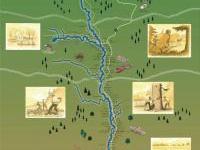 The Cascapedia is now recognized as one of the best salmon fishing rivers in the world, producing the largest salmon in North America. Its broodstock is well managed and a significant number of genitors are left on the spawning ground. Several biological measures are in place such as the survey on the smolt population and ocean tracking. Juveniles are followed and a hatchery is being operated in order to colonize the entire watershed. In addition, logging operations are under close surveillance and better practices have been implemented. Both Cascapedia fishermen and the local population have a great respect for this river because of its tranquil beauty, its heritage and its big fish.
The Cascapedia is now recognized as one of the best salmon fishing rivers in the world, producing the largest salmon in North America. Its broodstock is well managed and a significant number of genitors are left on the spawning ground. Several biological measures are in place such as the survey on the smolt population and ocean tracking. Juveniles are followed and a hatchery is being operated in order to colonize the entire watershed. In addition, logging operations are under close surveillance and better practices have been implemented. Both Cascapedia fishermen and the local population have a great respect for this river because of its tranquil beauty, its heritage and its big fish.
Tomorrow:
Throughout history, no other fish has captivated, inspired or challenged mankind as much as the Atlantic salmon. No other fish has been the subject of so many studies and discussions. These beautiful and fascinating fish have played an important role in the development of the communities surrounding the Cascapedia River. Their presence has contributed to the cultural enrichment of the whole area. They have provided the economic and recreational means to establish the river as a premier salmon fishing destination.
If we are to ensure that this valuable resource will be here for future generations, we must concentrate our efforts towards the conservation of this precious species. It is critical that we work together to educate the public about wild Atlantic salmon and their habitat, and encourage individuals to take the initiative to protect and preserve them. We must develop an understanding and an appreciation for their life cycle, and work with other salmon conservation agencies throughout the world.
The Cascapedia has faced many challenges over the years that have threatened to upset its unique and fragile ecosystem. Its managers have stood firm and have taken a leadership role in the race to save the Atlantic salmon. It has been said that there is no other river like the Cascapedia. The overseers of the river know that they must tread carefully to ensure that we leave this precious legacy intact. The promise of tomorrow on this magnificent river has to be a shared responsibility for all of us who love and respect the Cascapedia.
